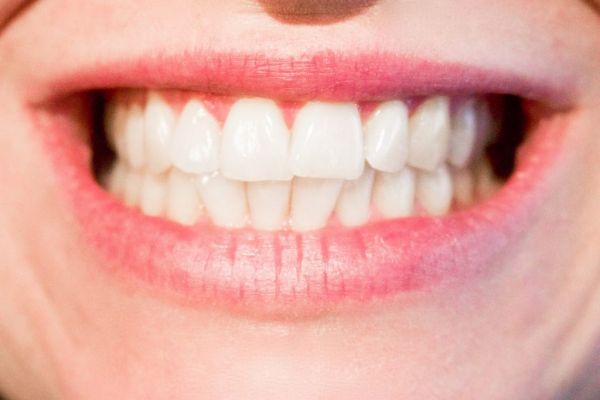The oral health and hygiene market in Ireland is currently valued at €60.1 million and the category experienced significant value growth in 2020. That growth is evident across all products and has, in part, been driven by changes to consumers’ dental hygiene habits in the wake of the COVID-19 pandemic. Checkout reports
rish people have been avoiding visiting the dentist since the beginning of the pandemic, mainly because they were keen to reduce their contacts or didn’t feel safe being that close to someone. On the plus side, many consumers have viewed COVID-19 as offering them the perfect opportunity to pursue a healthier lifestyle, including improving their oral hygiene practices.
Those were among the key findings of an
Oral-B survey, which was released on 12 November last. The research was conducted through an online survey across a nationally representative sample of 1,028 adults aged 18+. Research was conducted among members of Empathy Research’s proprietary research panel. Fieldwork was conducted from 20 to 25 October 2020.
The survey sought to assess Irish consumers’ current dental care habits and regimes in the wake of COVID-19. Almost half of those surveyed (45%) claimed they had avoided visiting the dentist since the beginning of the pandemic, with those aged between 18 and 24 years old significantly more likely to have avoided the trip (57%).
When asked about their reasons for avoiding the dentist, 44% of respondents said it was to reduce their contacts, while almost a third (28%) said they wouldn’t feel safe being that close to someone.
“Our health is in more focus than ever at the moment and dental health is a key part of that,” said Dr Niall Vallely of 3 Dental, in his comments about the research findings. “Prevention is always better than cure, so it is worrying to see that 22% of people are only visiting the dentist in an emergency."
"Having your teeth checked by a dentist every six months will significantly reduce the chances of bigger problems occurring down the line. Also concerning is that 19% of respondents say their teeth feel healthy, so they don’t think they need to attend the dentist. Catching a problem before there are symptoms will mean a much easier solution," he said.
“All dentists are taking their role in preventing the spread of COVID-19 very seriously. With the guidance provided by the HPSC and HSE, we are able to treat patients with the highest cross infection control measures, which keeps them and our staff as safe as possible.”
However, COVID-19 has also encouraged some people to make changes to their dental care regime, with almost one in five claiming to have made some element of change. Interestingly, those aged between 18 and 24 years old (45%) are considerably more likely to have done so.
Among those who have made a change as a result of the pandemic, over 80% said they made a positive change to their regime, including brushing their teeth for longer (46%), making sure they are brushing their teeth properly (24%) and using an electric toothbrush (21%).
Going Electric For Better Clean
When it comes to the use of electric toothbrushes in Ireland, 37% of survey respondents said they currently use an electric toothbrush, while 52% believe that an electric toothbrush would result in a better overall clean than a manual one. Just over half (51%) of those who have never used an electric toothbrush before said it was because they feel their manual toothbrush ‘does the job’.
“Many people have taken the opportunity to make positive lifestyle changes during the Covid-19 pandemic and it is great to see that so many people have improved their oral hygiene regime,” said Dr Vallely.
“I recommend that all my patients use an electric toothbrush, so it is heartening to see that this was one of the changes many were embracing. I can usually tell who is using an electric toothbrush from the quality of their oral hygiene, and my patients tell me they can feel the difference when they make the switch.”
Survey participants were also asked what they felt the most important part of their dental care regime was, with 55% saying it was their toothbrush. Respondents aged 65+ feel particularly strongly about this (63%). The remaining respondents cited toothpaste (33%) or the use of dental floss (13%).
“Electric toothbrushes should be the first step of your dental care regime in order to achieve your own personal dental care goals, whether that be brushing for the recommended time, getting a whiter smile, or just getting that dentist clean feeling at home,” said Adam Parker, Oral-B brand director UK & Ireland.
“We know that the three biggest issues for Irish people when it comes to their teeth are insufficient plaque removal, overbrushing leading to gum recession, and inadequate brushing time. Our electric toothbrush range was developed with these key areas in mind. Using an Oral-B electric toothbrush removes up to 100% more plaque, giving you healthier gums versus a manual toothbrush, avoiding overbrushing through built-in sensors, and enabling proportionate brushing time through built-in quadrant timers. The Oral-B electric toothbrushes have round brush heads which are a similar shape to what dentists use.”
Category Value Grows By 10%
According to Nielsen data for the 52 weeks to 6 December 2020 [Total Scantrack + Discounters MAT], the value of the oral health and hygiene market, which consists of toothpaste, toothbrushes, mouthcare, mouthwash and denture products, has increased by +10% compared to 2019. This value growth is led by mouthwash and oral hygiene, with sales +18% to €14.4 million in 2020.
Toothpaste is also showing strong growth, with value sales +10% to €31.4 million in the latest 52 weeks. Toothbrush value sales are +3.6% to €12.1 million in the latest 52 weeks, while denture product value sales are +2.3% to €2.2 million in the same period.
In terms of value sales, multiples account for 68% of the total market and are showing value growth of +8% versus YA. Convenience accounts for 8% and is showing value growth of +1% versus YA, while discounters account for 24% and are showing value growth of +21% versus YA.
Dentists Named As Priority Group For Vaccines
Confirmation was received by the Irish Dental Association last month that dentists would be among those to be prioritised for receipt of COVID-19 vaccines, alongside doctors, nurses and other healthcare workers.
A series of representations were made by the Irish Dental Association to state authorities at the highest level, insisting that dentists should be recognised as a priority group for the programme of vaccinations to be rolled out this year.
They reminded the authorities that the report published by the Department of Health recognised that “frontline healthcare workers in direct patient contact roles, or who risk exposure to bodily fluids or aerosols, and those providing services essential to the vaccination programme” should be prioritised in the Allocation Framework.
Accordingly, they sought confirmation that dentists meet this criterion and would be prioritised for receipt of the vaccines. They also advised the Department of Health that a small number of members wished to assist the state authorities to dispense the Covid-19 vaccines.
© 2021 Checkout – your source for the latest Irish retail news. Article by Maev Martin. Click sign up to subscribe to Checkout.








